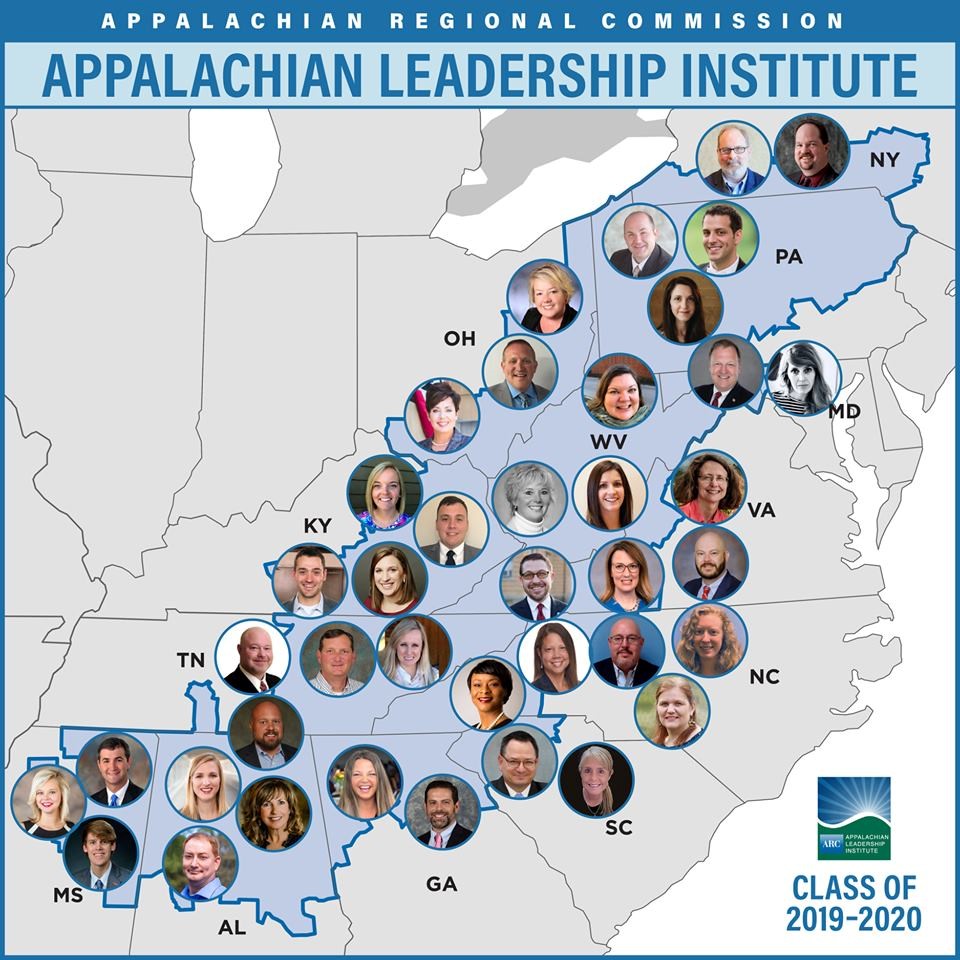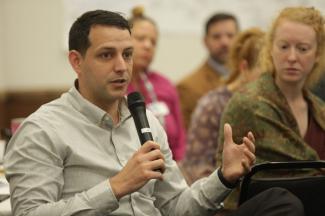 NETL’s Anthony Armaly is bringing hope and opportunity to communities like Harlan County, Kentucky, through his involvement in the Appalachian Leadership Institute.
NETL’s Anthony Armaly is bringing hope and opportunity to communities like Harlan County, Kentucky, through his involvement in the Appalachian Leadership Institute.
Last fall, Armaly met Colby Kirk, executive director of One Harlan County, an economic development organization in the southeast corner of the state.
After their first institute meeting, Kirk contacted Armaly, who works on NETL’s Strategic Partnerships team, with an urgent request. Harlan County, where good-paying jobs are scarce, was in danger of losing a 12-acre greenhouse project at a local industrial park because the area lacked natural gas service.
Alternatives such as propane were under consideration, but they would increase operational expenses three-fold. A natural gas well could be drilled near the site; however, there was no guarantee it could supply enough fuel.
One potential solution was to use coal, an inexpensive, abundant natural resource in Harlan County. “Are you aware of any technologies that could make this a cleaner process?” Kirk asked.
Armaly, who serves as manager for Global Partnerships and federal coordinator of the Regional Workforce Initiative at NETL-Pittsburgh, sprang at the opportunity to help.
He quickly touched base with the Lab’s technical experts who suggested that Kirk consider a coal/biomass co-gasification solution, which reduces the amount of coal needed by combining it with biomass such as wood chips, saw dust, grass, food crops, agricultural waste to produce energy while generating fewer emissions.
“Anthony has been a good friend,” said Kirk, adding the NETL suggestion has provided One Harlan County with a cleaner, lower-cost option as it continues to work on the greenhouse project.
The dialogue also opened other doors. Through Armaly, Kirk learned about NETL’s research to extract rare earth elements (REEs) from coal and coal byproducts.
REEs are used in the manufacture of smart phones, cars, television screens and defense technologies; even windmills and other green energy equipment need REEs to function. China dominates the REE market, which has prioritized the need for the United States to ramp up domestic production.
Armaly shared with Kirk how NETL is collaborating with experts at the University of Kentucky and in industry to advance REE research. Some of that research focuses on material from the Fire Clay coal seam in eastern Kentucky. Currently, meetings are being scheduled to determine what potential role Harlan County can play “in this 21st century use of coal,” said Kirk, whose father and grandfather worked in coal mines.
Armaly explained that admission to the Appalachian Leadership Institute, a comprehensive leadership training program developed by the Appalachian Regional Commission, is limited to 40 fellows annually. They are drawn from the public, private and non-profit sectors to hone their skills to lead economic development projects across Appalachia, a 205,000-square-mile region that follows the spine of the Appalachian Mountains from southern New York to northern Mississippi.
So far, serving as a 2019-2020 fellow, the institute’s inaugural class, has been an eye-opening experience. For example, Armaly said he was impressed to learn about the revitalization efforts undertaken in Mt. Sterling, Kentucky, a community 35 miles east of Lexington. Mt. Sterling restored its business district by aggressively pursuing grants, listening to residents’ ideas, encouraging development of amenities such as restaurants and a safe park for live music, and eliminating eyesores with improved lighting, fresh paint and murals.
“It’s been revived in the last five years into a community where people want to live,” Armaly said.
The nine-month institute experience includes seminars, best practice reviews and field visits to various locations in several states. Fellows are learning how to design effective project proposals, identify resources available to spur economic development and use their expanded leadership skills to create strong coalitions.
The 2019-2020 institute is tentatively set to wrap up in July. Through the institute, Armaly said he has gained greater insights into the challenges facing Appalachian communities and the resources available to bring positive changes.
“Building this strong network of contacts with so many individuals who are passionately committed to helping Appalachian communities thrive is something I could not have accomplished without this opportunity,” Armaly said.
“I now have folks in every state of Appalachia who I can reach out to for guidance on so many different topics. Utilizing this group to help spread messages on behalf of NETL will be a great resource as well,” he added.
Image caption: Anthony Armaly participates in a discussion with the Appalachian Leadership Institute.





 NETL’s Anthony Armaly is bringing hope and opportunity to communities like Harlan County, Kentucky, through his involvement in the Appalachian Leadership Institute.
NETL’s Anthony Armaly is bringing hope and opportunity to communities like Harlan County, Kentucky, through his involvement in the Appalachian Leadership Institute.